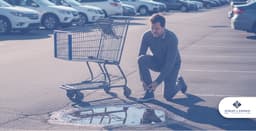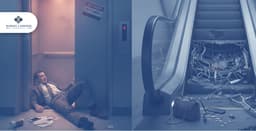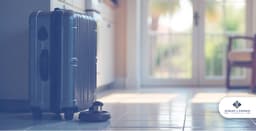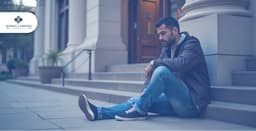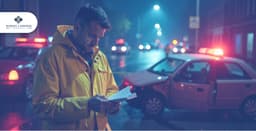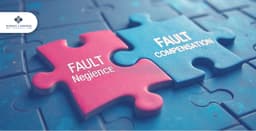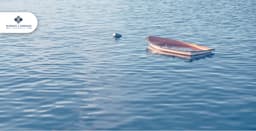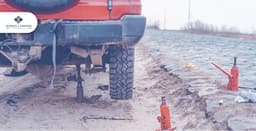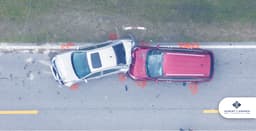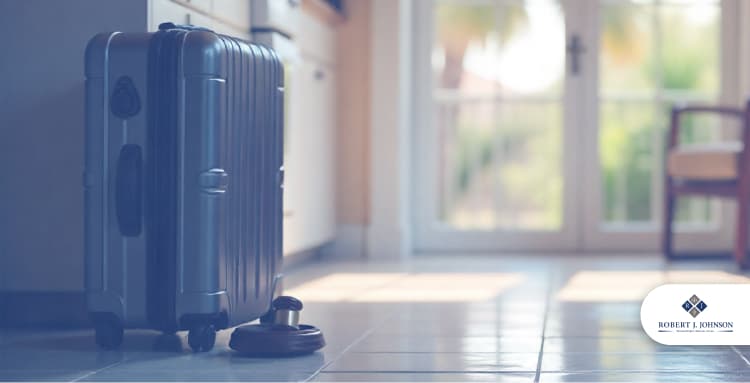
September 21, 2025
Who Is Responsible If I Slip at a Florida Airbnb or Vacation Rental?
Slips and falls in Florida Airbnbs or vacation rentals create both medical and legal complications. Unlike hotels, which operate under established corporate liability structures, vacation rentals fall into a gray area. Guests face unclear contracts, third-party platforms, and hosts who may or may not carry adequate insurance coverage.
Florida’s laws on short-term rental injuries are built on older premises, where “duty of care” means different things depending on who you are and where you're standing when you fall.
And that’s exactly where things start to get messy.
1) Who Could Be Held Responsible?
In Florida, when you slip at a vacation rental, the blame doesn’t land in one place. It splits, tangles, and shifts depending on contracts, conduct, and the calendar. The three important players are the property owner, the guest, and, in certain scenarios, Airbnb itself.
Under Florida’s premises liability law, property owners are responsible if they knew or should have known about a hazard and failed to address it. Proving this requires evidence of knowledge, timing, and causation.
Guests are not automatically off the radar either. If you ignored a warning sign, wore pool shoes inside, or had one drink too many, shared fault can cut your claim in half or erase it entirely.
Airbnb frames itself as a neutral platform, not a landlord, shielding liability through terms and disclaimers. Still, in rare cases of negligence or misrepresentation, the company can be challenged.
It is about who left the floor wet and who had a legal duty to do something about it. Moreover, in Florida, that duty shifts depending on exactly where, when, and how the injury happens.
Now let’s look at why the state’s own legal climate makes vacation rental cases even murkier.
2) Why Florida Law Makes Things Tricky
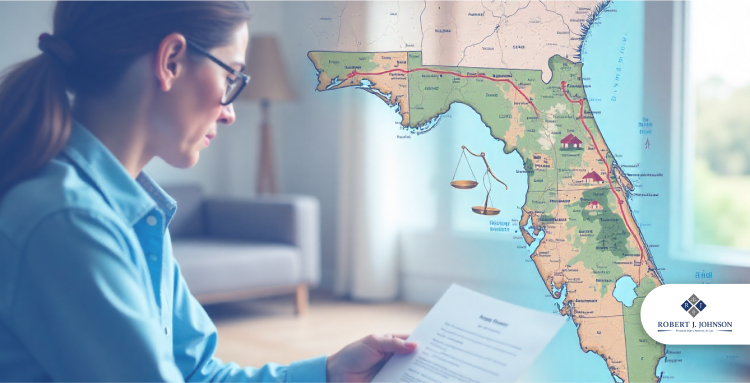
Florida is not California. It is not New York. And when it comes to vacation rental liability, it plays by its own rules.
In Florida, short-term rentals are usually interpreted under residential law. Courts often see them as private homes rather than commercial properties like hotels. This distinction matters because residential standards impose fewer obligations on owners. Guests may find that safety requirements, inspections, and liability expectations are less rigorous than those applied to businesses.
That shift in framing matters. It means hosts are usually held to a lower legal standard than hotels or resorts, even when they are charging premium rates.
The legal cornerstone here is “duty of care.” In Florida, property owners owe the highest duty to invitees, such as paying guests, as outlined in this Florida Bar consumer guide on premises liability.
However, the standard is still based on whether the owner had actual or constructive knowledge of the hazard. If they did not know, or could not reasonably have known, they often walk away without liability.Florida cases show the split. A guest who slipped on a wet patio lost because the risk was obvious. Another guest won after a stair rail went unrepaired despite prior complaints.
Liability in Florida is about what was known, when it was known, and what was done about it. And even if the host is found responsible, you still have to deal with the complex role of the platform itself.
Next up, we look at Airbnb’s legal position and why most claims never touch the company directly.
3) Airbnb’s Legal Shield
When you book a Florida rental through Airbnb, you are agreeing to more than dates and check-in times. You are agreeing to a dense web of policies, protections, and disclaimers, most of which are written to protect the platform, not the guest.
Airbnb’s much-promoted Host Protection Insurance sounds generous. It offers up to 1 million dollars in coverage for third-party claims. So, read deeper, and you will find a list of exclusions that can leave injured guests without real recourse. Anything considered wear and tear, intentional acts, or violations of Airbnb’s vague safety standards can knock a claim out before it starts.
Even when the policy applies, the claim process is slow and layered. Airbnb rarely pays out directly. They route claims through third-party insurance companies, where the standard for approval is strict and the timeline is unpredictable. In most cases, Airbnb distances itself by framing hosts as independent operators, not employees.
Unless you can prove gross negligence or intentional misconduct by Airbnb itself, the platform will likely not be held liable. They built their system that way. The legal firewalls are intentional, and they work.
So where does that leave you if you are injured and Airbnb points you back to the host? That depends on what you do next, and how fast you act. Up next, the practical steps that can make or break your claim.
4) What Should Guests Do After a Fall?
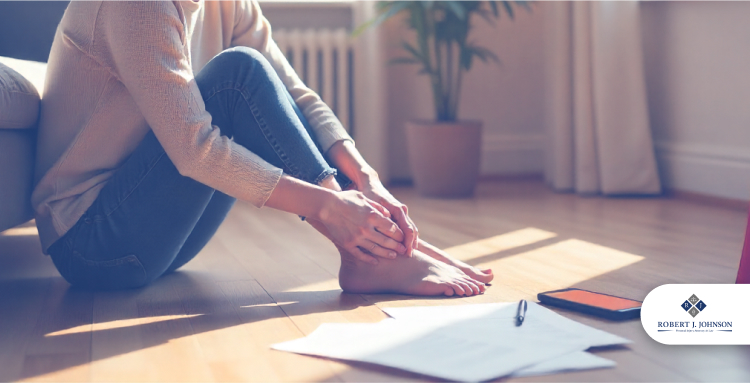
In the moments after a fall, most guests focus on pain, not protocol. However, in Florida, what you do in the first hour can shape everything that comes after.
Start with documentation. Take clear, timestamped photos of the area. Look for warning signs, damaged flooring, poor lighting, or slick surfaces. Get the names and numbers of any witnesses, even if they are just other guests. If the property has a management contact, file an incident report and request a copy.
Next, see a medical professional. Even if you think you are fine, get checked. Florida law puts the burden on you to prove both injury and causation. The longer you wait, the weaker your case becomes.
And do not assume the host will handle things. Polite conversations do not count as legal action. Their insurance, if it exists, is not obligated to cover you unless you file a formal claim. That is where legal counsel comes in. If your injuries are serious or if the host starts dodging communication, it is time to get representation.
The clock is already ticking. Florida’s statute of limitations on personal injury is typically 2 years. That sounds generous until you start managing the paperwork, the insurance language, and the pushback.
What about hosts? What can they do to protect themselves from these exact situations? That is next.
Get the full picture of your legal options in our related articles
Understanding Florida's Personal Injury Laws: What You Need to Know
How to Deal with Insurance Adjusters After a Personal Injury Accident
5) How Owners Can Avoid Getting Sued

In Florida, owning a short-term rental means managing more than just bookings. It means managing risk, and that starts long before anyone checks in.
Routine maintenance is a legal strategy. Cracked tiles, broken steps, loose handrails, these are more than cosmetic flaws. They are future claims waiting to happen. Courts do not care if it was your busiest season or if the last guest said nothing. If a hazard existed and you failed to act, liability follows.
Insurance and Waivers in Florida Rentals
Standard homeowner policies often exclude short-term rental coverage.
Owners may need a separate rider or commercial plan for proper protection.
Even with coverage, carriers can deny injury claims tied to negligence or poor documentation.
Waivers are rarely enforced in Florida injury cases. If a guest is hurt by unsafe conditions, legal responsibility remains regardless of signed paperwork.
Protection is about being proactive. Keep records. Schedule inspections. Do not assume your platform’s insurance has you covered.
Hosts are on the front line, but they are not alone. That is where legal experts step in. Up next, Robert Johnson breaks down how he handles these cases in the real world.
Slipped at a Florida Airbnb? Robert Johnson Shows Who’s on the Hook
Injury claims tied to vacation rentals are never simple, especially in Florida. That is where we come in. We handle the messy middle between platform policies and state law, so you are not left guessing who is on the hook.
Out-of-state guests are often caught off guard. The rules in Florida look familiar at first, but the fine print tells a different story. What feels like a straightforward slip can spiral fast without a proper legal footing.
Whether you were injured as a guest or worried as a host, do not assume you are covered. The law does not reward hesitation, and the platform is not built to back you up.
Have questions? Talk to us. We know where liability starts, where it ends, and how to protect your side of the story.


